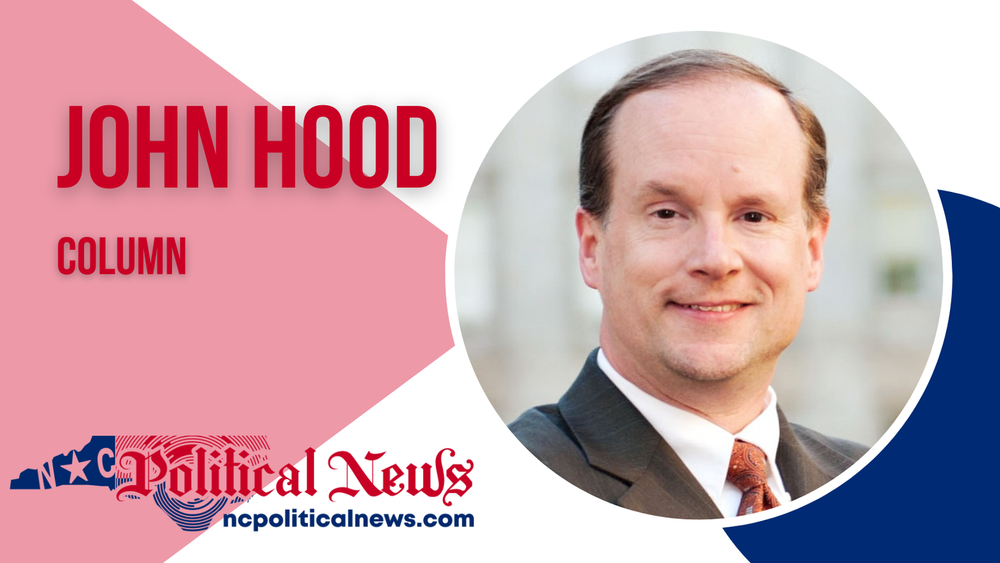John Hood: NCInnovation Is a Bridge Too Far
RALEIGH — North Carolina has enjoyed more than a decade of conservative governance. It’s brought our state impressive growth and widespread acclaim. The General Assembly has reformed and reduced state taxes, lightened the regulatory burden, invested in infrastructure, and promoted choice and competition in public services, among other accomplishments.
This year, lawmakers have an excellent opportunity to build on this record of success by enacting a 2023-25 state budget with a prudent mix of strategic investments and pro-growth tax reforms.
Unfortunately, the Senate version of the budget contains a non-conservative — indeed, a decidedly anti-conservative — provision to transfer $1.4 billion in taxpayer money to a private entity, NCInnovation. Its stated intention is to bridge the gap between academic research and successful commercialization.
Most new businesses fail. Indeed, many seemingly innovative ideas never become businesses in the first place. They fail to attract enough human and financial capital to sustain them as they move from the research-and-development phase to the revenue-producing phase. The business executives, consultants, and activists who created NCInnovation propose to solve the problem by making grants to university researchers and other interested parties to carry them across this gap, often described as the “valley of death.”
There may well be university researchers and other North Carolinians with promising ideas who just need some bridge funding to launch trailblazing new businesses. Sounds like a fascinating opportunity for private investors to pursue, with the promise of significant returns as well as the risk of significant losses. It is not, however, the proper role of state government.
As NCInnovation itself recognizes, “North Carolina is a powerhouse when it comes to research and development funding.” Our colleges and universities attract a great deal of private and federal research funding. State taxpayers add to that with one of the highest levels of university subsidy in the nation. While opinions may differ, my view as a conservative is that it is appropriate to use state dollars to subsidize research on state campuses, and to fund extension services to transfer research findings to private individuals and enterprises to implement.
As for the other cliff of the so-called valley of death, it’s clearly not appropriate to force state taxpayers to become venture capitalists for private startups. Although the initial budget language for the NCInnovation transfer appeared to allow for equity stakes in recipient firms, that idea is no longer on the table as far as I know.
Rather, the proposal is to transfer $1.4 billion from the state treasury to NCInnovation, a private entity with a board composed primarily of legislative appointees. Notice I didn’t say “appropriate.” I said transfer. The $1.4 billion is not technically an expenditure, which means it doesn’t count against the General Assembly’s annual spending cap of inflation plus population growth. For conservatives, that should already be a big red flag.
Exactly what range of grants NCInnovation might make from the proceeds of its $1.4 billion corpus is not clearly spelled out in any of the documents I’ve seen. Nor would its activities be subject to open meetings and public records laws.
And why should we expect the board and staff of NCInnovation to make better decisions about which potential ventures to fund than private investors would make with their own money? This is the crux of the matter. The organization has attracted an impressive array of directors and well-wishers, many of whom are accomplished executives. I don’t question their business savvy. I question why they deem it appropriate to risk just not their own money, or their friends’ money, or their clients’ money, but my money — and yours.
Conservatives believe that government’s role is clearly defined and limited. We pay taxes to fund public services such as law enforcement, courts, education, and transportation assets that cannot or should not be funded through receipts or voluntary contributions. When the line between the public sector and the private sector gets blurry, we get concerned. When it disappears entirely, we get angry.
Are you tired of being bombarded by paywalls and pop-up ads when trying to read the news? Do you believe that access to reliable political news should be free and accessible to everyone? Then we urge you to support NC Political News, a weekly electronic political news outlet.
NC Political News is committed to providing high-quality, unbiased political reporting with columnists from all political sides. Unlike other news outlets, NC Political News is free to read and supported by businesses who purchase ad space on our website and in our newsletter, which goes out Monday through Friday at 7:00 am. This means that readers like you can access the news without being asked to pay a cent or dealing with frustrating advertisements.
However, to continue providing this valuable service, NC Political News needs your support. If you believe in the importance of accessible, free news, we urge you to click the image below. Any amount of support is appreciated.
Together, we can keep the news free and help ensure our state stays informed and connected.




